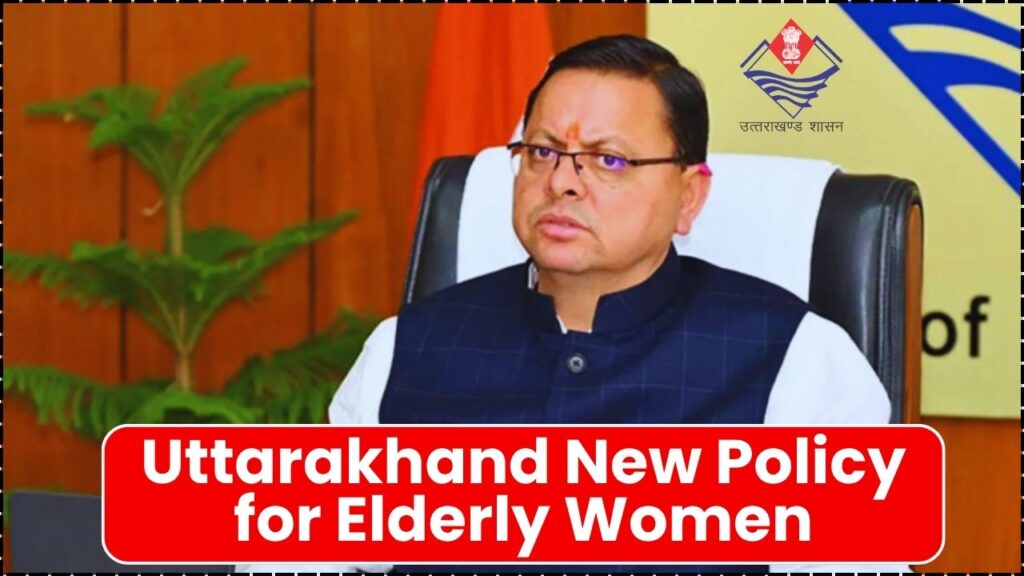Uttarakhand is moving quickly to shape a practical framework focused on elderly women, with the Women Empowerment and Child Development department launching local consultations to understand real needs nutrition, caregiving, and emotional support—across both hills and plains. The initiative centers voices that are usually unheard, so policy isn’t built in silos but from lived experience gathered in villages and districts. The goal is straightforward: ensure dignity, safety, and reliable access to essential services for elderly women who are often isolated, widowed, or financially vulnerable. This people-first approach is designed to translate conversations into clear, implementable actions without delay.

This Uttarakhand policy for elderly women is being drafted through small, district-level conferences where officials and community partners will directly listen to elderly women talk about money worries, loneliness, health access, and daily challenges. The design choice is intentional start with listening, then build interventions that fit the terrain, travel constraints, and social realities of remote areas. The state is also scaling supporting infrastructure old-age homes, a senior ambulance service, caregiver training—so the new framework sits on a ready backbone. With drafting prioritized for swift approval, the planned scheme aims to deliver targeted support across every district.
Table of Contents
Uttarakhand Department to Draft New Policy for Elderly Women
| Key point | What’s happening | Why it matters | Status |
|---|---|---|---|
| Direct consultations | Village and district meet to capture elderly women’s needs | Builds policy on ground truth, not assumptions | Directed and underway |
| Focus on remote hills | Targeted outreach in difficult terrain | Closes service-access gaps for the most vulnerable | Stated program priority |
| Infrastructure support | Old-age homes, senior ambulance, caregiver training | Provides a strong care backbone for rollouts | Announced and expanding |
| Speed to policy | Draft on priority with quick approval path | Enables near-term, staged implementation | In the drafting pipeline |
Community groups, ASHAs, and NGOs can prepare to participate in district consultations and map hyperlocal barriers—transport, documents, caregiver time—so they are addressed in the draft. Families supporting elderly women can track announcements on new homes, caregiver hubs, and ambulance access to tap services promptly. With people-first design, on-ground feedback, and a growing care network, the Uttarakhand policy for elderly women is poised to turn intent into on-the-ground improvements for health, safety, and dignity.
Why this draft matters now
Elderly women often face the sharpest edge of vulnerability—limited income, reduced mobility, and social isolation. A dedicated framework gives their needs a clear pathway rather than treating them as an afterthought in broader welfare. By rooting decisions in district-level feedback, officials can match services to actual barriers: steep terrain, transport scarcity, and documentation hurdles. With a growing senior-care network, the state can move from intent to impact faster—linking nutrition, health access, and social support where they’re most needed.
What could actually change
- Localized care delivery
Expect consistent outreach in gram sabhas—nutrition support, health linkages, and counseling—arriving closer to homes instead of episodic, centralized camps. - A clear support pathway
Consultations will help define simple touchpoints—panchayat offices, old-age homes, and NGO desks—so elderly women know where to go and what to bring. - Faster execution
Prioritized drafting and a ready implementation ecosystem make it possible to phase rollouts quickly, especially where infrastructure is already live.
What the consultations will capture
Officials and partners will document income gaps, social isolation, access to clinics, routine medicine needs, and everyday barriers like transport to cataract or screening camps. Emotional wellbeing is in scope too—peer circles, helplines, and regular check-ins through trained caregivers can reduce loneliness and stress. These inputs will inform eligibility norms, doorstep delivery options, and a simple navigation flow that minimizes paperwork and travel.
How the state’s senior-care network fits in
New and upgraded old-age homes give the policy reliable anchors for respite care, assisted living, and referrals. A dedicated senior ambulance can bridge emergency gaps in the hills, while trained caregivers provide companionship, basic rehab support, and routine monitoring. Pension coverage, assistive devices, and targeted surgeries or health camps can be woven into a single care chain—reducing the need for multiple, confusing touchpoints.
FAQs on Uttarakhand Department To Draft New Policy for Elderly Women
What is the Uttarakhand policy for elderly women?
A dedicated state framework being drafted to deliver nutrition, caregiving, and emotional support to elderly women, with special focus on remote and vulnerable communities.
How will inputs be collected?
Through small, local conferences at village and district levels, where elderly women can share economic, social, and health-related challenges directly with officials.
What infrastructure supports the policy?
Old-age homes, a senior ambulance service, and caregiver training provide the backbone for referrals, emergency help, and routine support.
When will it launch?
Drafting has been prioritized for a quick approval cycle, indicating implementation can begin in stages once consultations conclude.











